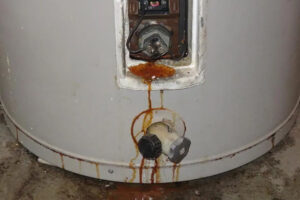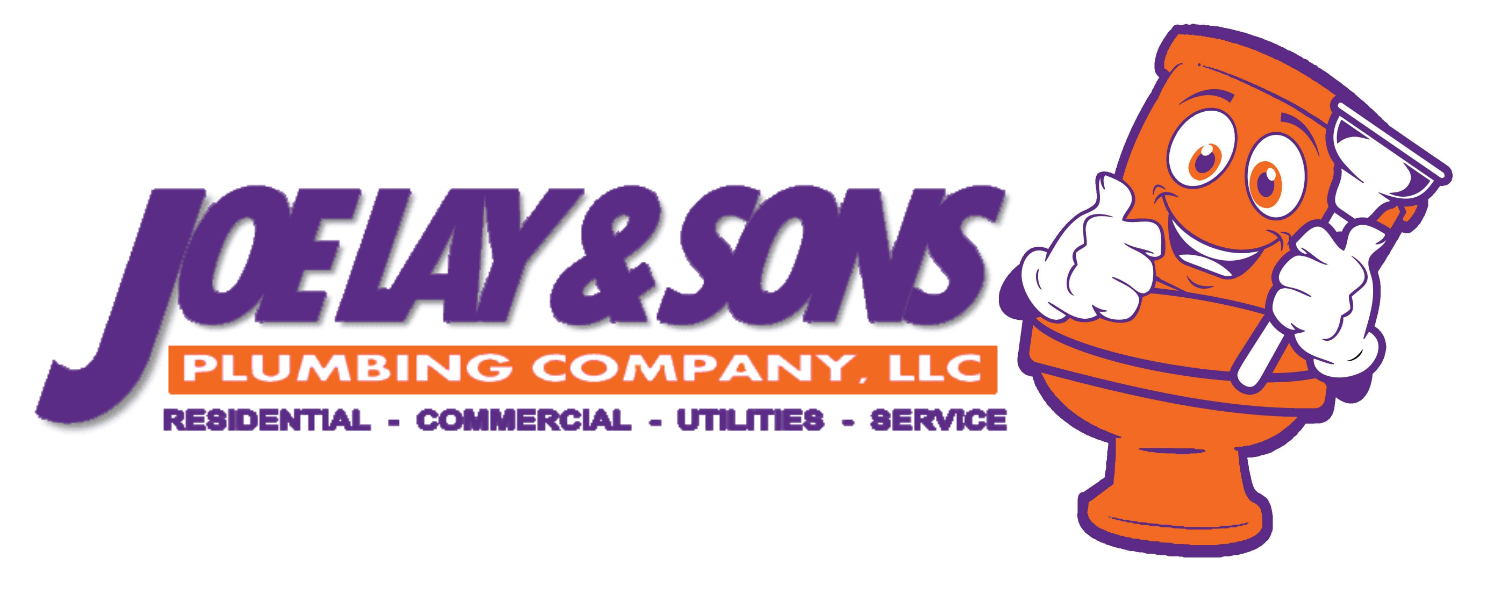 Is your water heater not providing enough hot water? Are you experiencing strange noises or leaks? These could be signs that your water heater is in need of repair. Ignoring these warning signs can lead to costly repairs or even a complete breakdown of your water heater. In this comprehensive guide, we will explore the common signs that indicate your water heater requires professional attention. By recognizing these signs early on, you can avoid potential damage and ensure a reliable supply of hot water for your household needs.
Is your water heater not providing enough hot water? Are you experiencing strange noises or leaks? These could be signs that your water heater is in need of repair. Ignoring these warning signs can lead to costly repairs or even a complete breakdown of your water heater. In this comprehensive guide, we will explore the common signs that indicate your water heater requires professional attention. By recognizing these signs early on, you can avoid potential damage and ensure a reliable supply of hot water for your household needs.
Insufficient Hot Water
One of the most obvious signs that your water heater needs repair is when it fails to provide an adequate amount of hot water. If you’ve noticed a decline in hot water supply or if it takes longer for the water to heat up, there could be underlying issues. A malfunctioning heating element in electric water heaters or a faulty thermocouple or gas control valve in gas water heaters can cause this problem. Additionally, sediment buildup in the tank can reduce its capacity, resulting in less hot water availability. While some issues can be resolved with professional repairs, an old water heater with persistent problems may require replacement for a more cost-effective solution.
Rusty or Discolored Water
Discovering rusty or discolored water when you turn on the hot water tap is a clear indication of corrosion inside your water heater tank. This is a serious issue that should not be ignored, as prolonged corrosion can lead to leaks and irreversible tank damage. The rusty water can also affect the quality of the water used for everyday tasks. Regular maintenance, such as periodic flushing of the water heater to remove sediment buildup, can help prevent corrosion. Flushing involves draining the tank and removing accumulated sediment, which serves as an excellent preventive measure against rust formation.
Strange Noises
Have you ever heard popping, banging, or rumbling noises coming from your water heater? These unusual sounds can be alarming and may signal a problem with your water heater. Typically, these noises are caused by sediment buildup at the bottom of the tank. As water is heated, minerals and sediment settle and harden over time, reducing the efficiency of the water heater and creating loud noises during the heating process. Flushing the tank to eliminate the sediment can often resolve this issue. However, if the noises persist, it could indicate a more severe problem that requires professional attention.
Water Leakage
Leaking water around the water heater should never be ignored, as it can indicate cracks or damage to the tank, fittings, or pipes. Ignoring a leak can lead to water damage in your home and potential mold growth, which can cause significant structural and health issues. If you notice puddles or dampness around the water heater, it is crucial to call a plumber immediately to assess the issue. Prompt action can save you from costly water damage repairs and ensure the safety of your home.
Old Age
Water heaters have a limited lifespan, and as they age, they become less efficient and more prone to malfunctions. On average, a water heater can last between 6 to 12 years, depending on the type and maintenance. If your water heater is approaching or has exceeded its expected lifespan, it’s time to consider a replacement. An aging water heater is more likely to experience frequent breakdowns, increased energy consumption, and higher repair costs. Upgrading to a newer, energy-efficient model not only saves money on utility bills but also ensures a reliable supply of hot water for your household needs.
Fluctuating Temperature
While a complete lack of hot water is obvious, fluctuating temperatures can be a more subtle sign of water heater problems. If you notice inconsistent hot water temperatures, it could be due to mineral deposits (scale) buildup or a faulty water heater element. Scale accumulation can affect the efficiency of the heating process, while a faulty element may require professional repair or replacement. If you suspect any issues with temperature consistency, it’s essential to address them promptly to avoid further complications.
High Energy Bills
A sudden increase in your energy bills without any significant change in usage patterns could be an indication that your water heater is not functioning efficiently. Over time, sediment buildup in the tank can reduce the overall efficiency of the water heater, leading to increased energy consumption. Additionally, a malfunctioning heating element or faulty thermostat can also contribute to higher energy bills. If you notice a significant spike in your energy costs, it’s worth having your water heater inspected by a professional to identify and address any underlying issues.
Decreased Water Pressure
If the water pressure in your home has significantly decreased, your water heater may be to blame. Sediment buildup or mineral deposits can restrict the flow of water through the pipes, causing reduced water pressure. Flushing the water heater and cleaning the pipes can often resolve this issue. However, if the problem persists, it’s crucial to seek professional assistance to diagnose and fix the root cause of the decreased water pressure.
Pilot Light Issues
For gas water heaters, a malfunctioning pilot light can be a sign of potential problems. If the pilot light frequently goes out or struggles to stay lit, it may indicate a faulty thermocouple or gas control valve. These components are responsible for maintaining the proper gas flow and ensuring the pilot light remains lit. A professional plumber can inspect and repair or replace the faulty parts to restore the functionality of your water heater.
Mineral Buildup
Mineral buildup, often referred to as scale, is a common problem in areas with hard water. Over time, minerals like calcium and magnesium can accumulate inside the water heater tank and on heating elements, reducing efficiency and potentially causing damage. Regular maintenance, including flushing the tank and descaling the heating elements, can help prevent mineral buildup. However, if the scale has already formed, professional intervention may be necessary to remove it and restore optimal performance.
Foul Odors
If your hot water has a foul smell, particularly a rotten egg odor, it could be a sign of bacteria growth inside your water heater tank. Bacteria can produce hydrogen sulfide gas, which gives off the distinctive rotten egg smell. Flushing the water heater and sanitizing the tank can eliminate the bacteria and the unpleasant odor. It’s important to address this issue promptly to ensure clean and odor-free hot water for your household.
Corroded or Damaged Tank
Inspecting the tank itself is another way to determine if your water heater needs repair. If you notice any signs of corrosion, such as rust spots or discolored areas on the tank, it’s essential to take immediate action. Corrosion can weaken the tank structure, leading to leaks and potential water damage. Additionally, physical damage to the tank, such as dents or cracks, should not be ignored, as they can also result in leaks. If you observe any corrosion or damage to the tank, contacting a professional plumber for assessment and repair is crucial.
Paying attention to the warning signs of water heater problems is crucial for maintaining the functionality and efficiency of your system. If you notice any of the signs discussed in this guide, it’s essential to seek professional assistance to diagnose and repair the issues promptly. Regular maintenance and timely repairs can extend the lifespan of your water heater and ensure a reliable supply of hot water for your household needs. Don’t ignore the warning signs, as proactive measures can save you from costly repairs or replacements in the long run.
Contact Us (859-384-3467) for a Consultation
—
 About Joe Lay & Sons Plumbing
About Joe Lay & Sons Plumbing
Serving Northern Kentucky and Greater Cincinnati Since 1970!
Joe Lay & Sons Plumbing can quickly and efficiently handle your plumbing requests with little disruption to your day-to-day! Our team of experienced and skilled plumbers can handle most residential and commercial plumbing problems. We want to reduce your stress and save you money. We keep our prices competitive, so you can use our services without breaking the bank.
> Learn More

 About Joe Lay & Sons Plumbing
About Joe Lay & Sons Plumbing